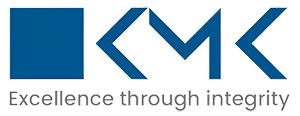Automating Financial Operations: Why RPA is a Game-Changer for Accounting

Introduction
The present state of business is fast-paced, necessitating efficiency and accuracy in each process. The accounting and finance sectors, in particular, constantly strive to streamline operations and reduce costs to ensure compliance with the continually changing rules and regulations.
New technologies are being explored to transform the execution and implementation of accounting processes. Among such technologies currently being investigated, a revolutionary technology called Robotic Process Automation (RPA) is changing how accounting processes are executed.
This technology brings a myriad of benefits to accounting. It eliminates errors, enhances scalability, and drives operational excellence within businesses and organizations.
What is Robotic Process Automation?
Robotic Process Automation automates repetitive and rule-based tasks by mimicking the actions of a human interacting with computer systems. Robotic process automation accounting services use software bots to do repetitive work in accounting and finance. These bots replicate the work of humans and can handle many systems at the same time. With the help of RPA, businesses can effectively cut errors and improve tasks, especially those involving financial management.
RPA can transform accounting workflow by combining disparate actions into a smooth, automated process. According to a recent Deloitte survey, Robotic Process Automation services in accounting reduced costs by 59% and improved accuracy by 90%. It also improved customer compliance by 92% and productivity by 85%.
That RPA is only for the big players in accounting is just a misconception. Today, RPA technologies have become highly accessible for smaller and regional accounting firms with relatively modest IT setups.
A Simplified Robotic Automation Process
Today, accountants use computer-dependent tools and processes involving several manual steps and keystrokes. The RPA bot captures the users’ on-screen actions, such as clicks and entries. The app then generates a script based on the users’ on-screen movements. The RPA bot then uses this generated script to automate repetitive, rule-based accounting tasks. Thus, RPA bots can now mimic human actions when executing functions within a process. These software applications can perform repetitive tasks quickly with accuracy and consistency. RPA can be utilized in situations where the work is mundane and time-consuming. Accountants and other finance professionals thus can focus on other tasks that require focus, analysis, and strategic decision-making, thereby mitigating mistakes and labor costs.
How RPA Differs from Traditional Automation
RPA offers more flexibility and ease of use than traditional automation. RPA is faster to adopt and doesn’t need a lot of IT-related development or coding work. RPA bots can handle several tasks without significant changes at the ground level. No major overhauls are required as RPA can fit smoothly with current software and systems. The following table shows some of the differences between traditional automation and robotic process automation:
|
Traditional Automation |
Robotic Process Automation (RPA) |
|
· Limited flexibility and scalability |
· Highly flexible and scalable |
|
· Comparatively meets fewer business needs. |
· Meets a wide range of business needs |
|
· Costly and time-consuming implementation |
· Can be implemented rapidly |
|
· Significant IT support |
· Requires minimal IT support |
|
· Can automate only specific tasks within a single system |
· Can be used to automate processes across multiple systems |
How Can RPA Be Used In Accounting And Finance?
More and more companies are adopting RPA in their accounting and finance processes. RPA can be used in various ways in accounting and finance functions. Today, companies like KMK offer Robotic Process Automation services to help streamline their businesses and reduce manual labor. Their team of experts can help companies identify processes suitable for automation, design and develop custom RPA solutions, and provide ongoing support and maintenance.
By implementing RPA, businesses can increase efficiency, reduce errors, and improve productivity. KMK’s Robotic Process Automation services are designed to be cost-effective, scalable, and tailored to each business’s unique needs and goals. Some of the typical applications in which RPA can play a vital role are as follows:
- Streamlining Financial Close and Reporting: RPA automates collecting, consolidating, and processing financial data from multiple sources. This process helps speed up financial close and reporting tasks.
- Enhancing Tax Compliance: With the help of RPA, it becomes possible to automate data gathering, calculations, and tax return preparation. This process ensures timely and accurate compliance with tax regulations.
- Optimizing Accounts Payable/Receivable: RPA bots handle the full scope of accounts payable and receivable tasks, including invoice entry, matching, payment processing, and reconciliations.
- Simplifying Expense Management: With RPA, it becomes easier to streamline expense management by automating the submission, approval, and processing of expense reports. This leads to faster reimbursements and fewer manual errors.
- Improving Customer Billing Efficiency: RPA facilitates the billing process, automating data entry, invoice creation, and distribution, resulting in faster and more accurate invoicing.
- Boosting General Ledger Operations: RPA bots manage journal entries, inter-company transactions, and account reconciliations. This process helps in reducing manual effort and enhancing accuracy.
- Supporting Audits with Automated Data Collection: Automating the gathering and organization of data makes audit processes more efficient. It also ensures compliance with audit requirements.
- Streamlining Procurement and Vendor Management: Bots improve efficiency by automating purchase order creation, vendor onboarding, and invoice processing, enhancing procurement workflows.
What are the benefits of RPA in Accounting?
Here are some crucial benefits of using Robotic Process Automation (RPA) in accounting:
- Automate Data Entry: With RPA, manual data entry is no longer needed. Bots can automatically pull information from documents like invoices and bank statements and enter it into accounting systems. This process speeds up work, reduces errors, and allows accountants to focus on more critical tasks.
- Reduce Human Errors: RPA eliminates mistakes by automating tasks like data entry and calculations. Since bots follow specific rules, they get it right every time. This saves time and ensures companies can trust their financial data.
- Streamline Accounting Workflows: RPA can take over repetitive tasks like invoice processing and reconciliations, reducing the need for multiple employees. Fewer staff members are required for manual tasks, which saves money and lets the team focus on higher-level work.
- Cut Costs: RPA reduces labor costs and overhead by automating time-consuming tasks. It also lowers the expense of fixing errors. RPA is more cost-effective to implement and maintain than traditional systems, making it a great option to increase profitability.
- Scale with Ease: RPA can quickly adapt to growing or changing accounting needs. As workloads increase, more bots can be added without hiring and training new staff. This flexibility allows businesses to scale operations efficiently and at a lower cost.
- Boost Business Flexibility: RPA helps companies adapt to change by automating routine tasks, freeing time to tackle new challenges. When bots handle repetitive work, teams can focus on strategy and improving overall business resilience.
- Improve Cash Flow: RPA helps businesses manage cash flow better by automating accounts payable and receivable tasks. This ensures invoices and payments are processed quickly, reducing delays and improving financial control.
- Speed Up Financial Closing: RPA provides real-time access to financial data, making the closing process faster. With quick access to accurate information, businesses can make timely decisions and stay ahead in reporting.
- Increase Accuracy: By combining RPA with AI, businesses can eliminate errors in tasks like data entry and calculations. Bots follow strict processes to get the job done correctly every time, boosting the reliability of financial reports.
Conclusion
Robotic Process Automation (RPA) is changing how businesses handle their accounting processes by automating repetitive tasks, reducing errors, and cutting costs. This technology speeds up routine work and allows teams to focus on more strategic, high-value activities. Whether improving accuracy, streamlining financial closings, or managing cash flow more effectively, RPA offers a flexible and scalable solution for businesses of all sizes. KMK offers tailored Robotic Process Automation accounting services to help companies implement automation efficiently. Their team of experts identifies processes ideal for automation, develops customized RPA solutions, and provides ongoing support to ensure long-term success. With KMK’s help, companies can unlock the full potential of RPA to enhance productivity and stay agile in today’s competitive business world.
 Dev Kothari, a seasoned leader at KMK, heads the Special Teams, where he leverages his extensive expertise in managing large-scale accounting and tax return processing for U.S.-based clients. With a keen eye for workflow optimization and stakeholder collaboration, Dev drives exceptional efficiency and quality in high-volume project delivery. As a dual-qualified CPA (AICPA, Arizona) and Chartered Accountant (ICAI), Dev’s blend of strategic insight and technical prowess positions him as a key asset in ensuring KMK’s clients consistently achieve their financial goals.
Dev Kothari, a seasoned leader at KMK, heads the Special Teams, where he leverages his extensive expertise in managing large-scale accounting and tax return processing for U.S.-based clients. With a keen eye for workflow optimization and stakeholder collaboration, Dev drives exceptional efficiency and quality in high-volume project delivery. As a dual-qualified CPA (AICPA, Arizona) and Chartered Accountant (ICAI), Dev’s blend of strategic insight and technical prowess positions him as a key asset in ensuring KMK’s clients consistently achieve their financial goals.
USA:
651 N Broad St Suite 205, Middletown, DE 19709, USA
Phone: 310-362-2511
India:
300, Sankalp Square-3B
Sindhu Bhavan Marg,
Ahmedabad, Gujarat 380058
For Career: 91-98240-42996
Developed by Bluele | Copyright © 2025 | KMK Ventures Private Limited. | All Rights Reserved


